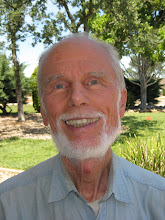Some things are right and wrong, eternally so, absolutely so. It’s wrong to hate; it always has been wrong and it always will be wrong. It is wrong in America, and it is wrong in Germany, it is wrong Russia, and it’s wrong in China. It was wrong in 2000 BC and it is wrong in 1954 AD.This morning when I heard this passage from King's "Recovering Lost Values" speech on NPR's Morning Edition, I was struck by his emphasis on moral absolutes. Indeed, in that speech he boldly attacked the moral relativism that he saw as a threat to the moral vision that underlay his dream of justice and peace for America.
Allan Bloom traced the intellectual history of this relativism in post-WWII America to its German roots in his The Closing of the American Mind. But moral absolutes were alive and well in King's mind and in the black churches that formed the backbone of the Civil Rights Movement. They well understood that in America, the surest basis for our knowledge of these absolutes was the Law of God handed down to Moses on Mount Sinai.
But in The Abolition of Man, C. S. Lewis outlined the "Way" or the "Tao," the universal moral insights of all the great civilizations in opposition to the Greenbook, which instructed British educators in how they should indoctrinate school children in relativism. And the Apostle Paul reveals to us that even in those nations that did not have the Law of Moses, "they show that the requirements of the law are written on their hearts" (Romans 2:15a).
The first thing I thought of this morning when I heard King's words was the passage from J. R. R. Tolkein's The Two Towers that I cited back in December:
King's speech deserves study as an example of the power of moral absolutes to motivate the nonviolent battle for justice. And Tolkein's words are an example of the power of literature to cast a moral vision. Thus, J. R. R. Tolkein inculcates moral absolutes imaginatively as surely as does Martin Luther King discursively. And J. K. Rowling just as surely inculcates the moral relativism King abhorred. Literature resembles politics in that, for better or worse, it is always ultimately moralGood and ill have not changed since yesteryear; nor are they one thing among Elves and Dwarves and another among Men. It is a man's part to discern them,
as much in the GoldenWood as in his own house.
A transcript of "Recovering Lost Values" is available at: http://www.africanamericans.com/MLKjrRediscoveringLostValues.htm

No comments:
Post a Comment